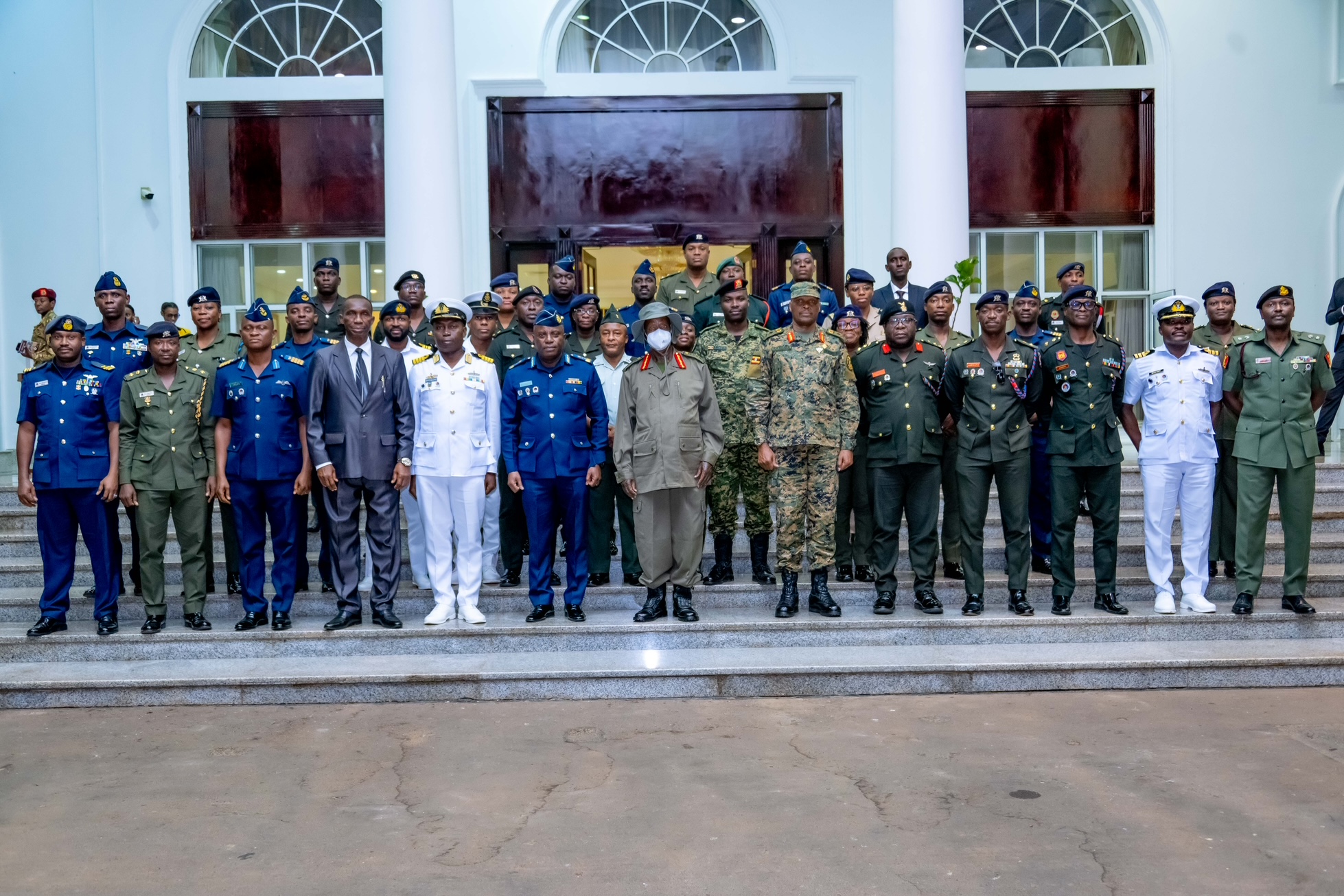
President Yoweri Kaguta Museveni has issued a clarion call to African nations to abandon outdated energy sources and embrace clean, affordable electricity as the key to reversing environmental damage and driving the continent’s economic renewal.
Speaking to senior military officers from Ghana’s Armed Forces Command and Staff College (GAFCSC) Senior Course 46 at State House, Entebbe, Museveni called for a shift from traditional biomass fuels like firewood and charcoal, which he identified as major contributors to deforestation, poverty, and environmental decline.
“If you want to protect the environment, you must solve the issue of fuel,” Museveni said. “We must stop villagers from cutting down trees for firewood. Electricity is affordable, and clean energy is the only solution.’’
The lecture, part of a study tour on climate change, environment, security, and development, was led by Brig Gen Saad Katemba Director of Training and Doctrine at the Uganda People’s Defence Forces (UPDF).
Museveni cited Uganda’s declining water outflow into South Sudan from 60 billion cubic meters in the 1960s to 40 billion today as evidence of worsening environmental stress. He called for significant investment in energy infrastructure to deliver reliable, low-cost power to both households and industries.
“I no longer welcome private electricity companies that drive up costs. Power must be abundant and affordable either through government projects or private investors with patient capital,” he said.
He emphasized that industrialization hinges on cheap electricity, warning that high energy costs are incompatible with economic growth.
“Factories and industries need power that costs no more than five cents per kilowatt-hour. For nightclubs and dancers, I do not mind high charges but not for production.”
Museveni connected energy access with broader economic reforms, particularly the need to move away from subsistence farming. He described widespread small-scale agriculture as a form of disguised unemployment.
’’In the U.S, only 2% of the population is engaged in agriculture. In Uganda, you will find entire families of a grandfather, father, and grandchild all on 2 acres of land. That is disguised unemployment,” he said.
He also advocated for the industrialization of tropical river basins like the Nile and Congo, which he sees as key to modernizing land use and catalyzing regional development.
Beyond energy and agriculture, Museveni urged African leaders to move past identity politics and embrace a unifying ideology rooted in shared interests.
He emphasized that Africa’s success hinges on prosperity, security, and regional solidarity principles long championed by Pan-Africanists like Kwame Nkrumah and Julius Nyerere.
“Prosperity won’t come from aid. It comes from production and market access,” he said, citing Uganda’s cotton sector as an example of the value gained from processing local resources. “Raw cotton earns $1 per kilo, but value addition can push that to $14.”
He also advised against allowing political disputes to disrupt regional trade, particularly in West Africa.
“You may impose sanctions on individual leaders if you must, but do not cripple entire economies or shut down markets,” President Museveni asserted.
“In East Africa, we fought hard for regional integration. Uganda is a key part of the East African market, and that foundation must not be sacrificed for short-term political interests,” he warned.
President Museveni concluded by urging the officers to adopt the four ideological pillars of Uganda’s National Resistance Movement (NRM): patriotism, Pan-Africanism, socio-economic transformation, and democracy.
“Africa’s challenges are ideological. Interest must come before identity if we are to fulfill our historical mission,’’ he noted.
Brig Gen Katemba praised the tour’s role in exposing Ghanaian officers to Uganda’s integrated model of environmental security and sustainable industrial development.
Maj John Otoo, representing Ghana Armed Forces, of the 35-member delegation, thanked the President for his strategic insights, describing the lecture as a powerful guide for future African leadership.
’’We have been privileged to hear your vision centered on Africa’s three historical missions; prosperity, strategic security, and our shared African fraternity,” Otoo said.